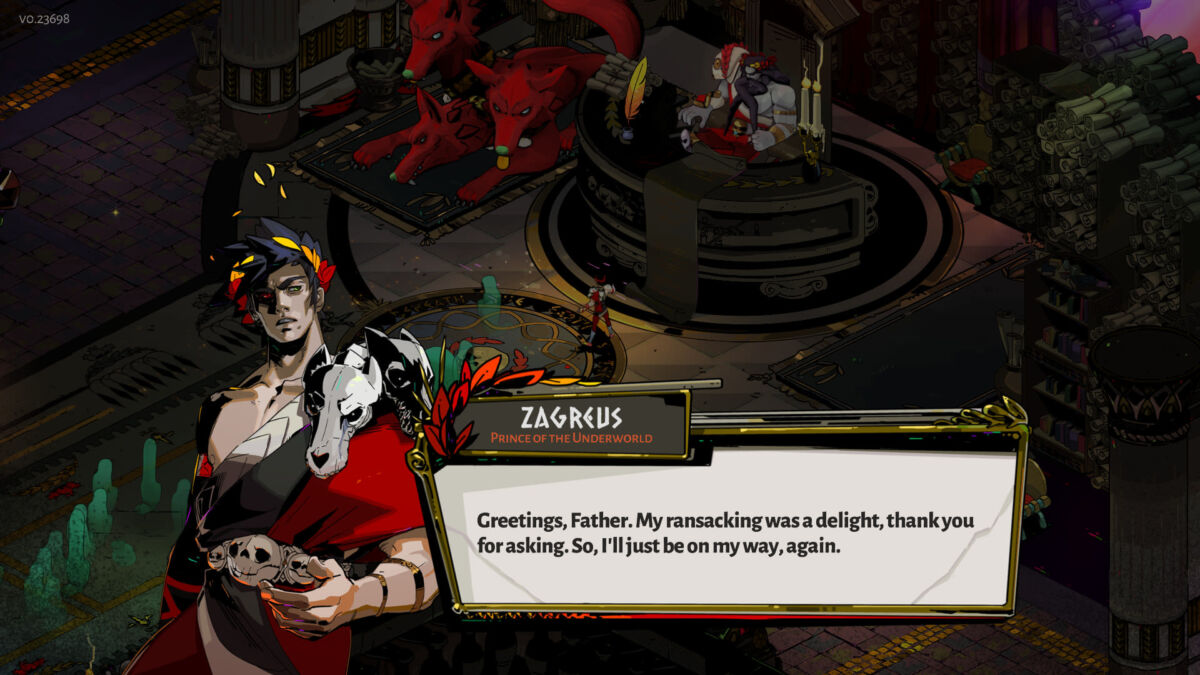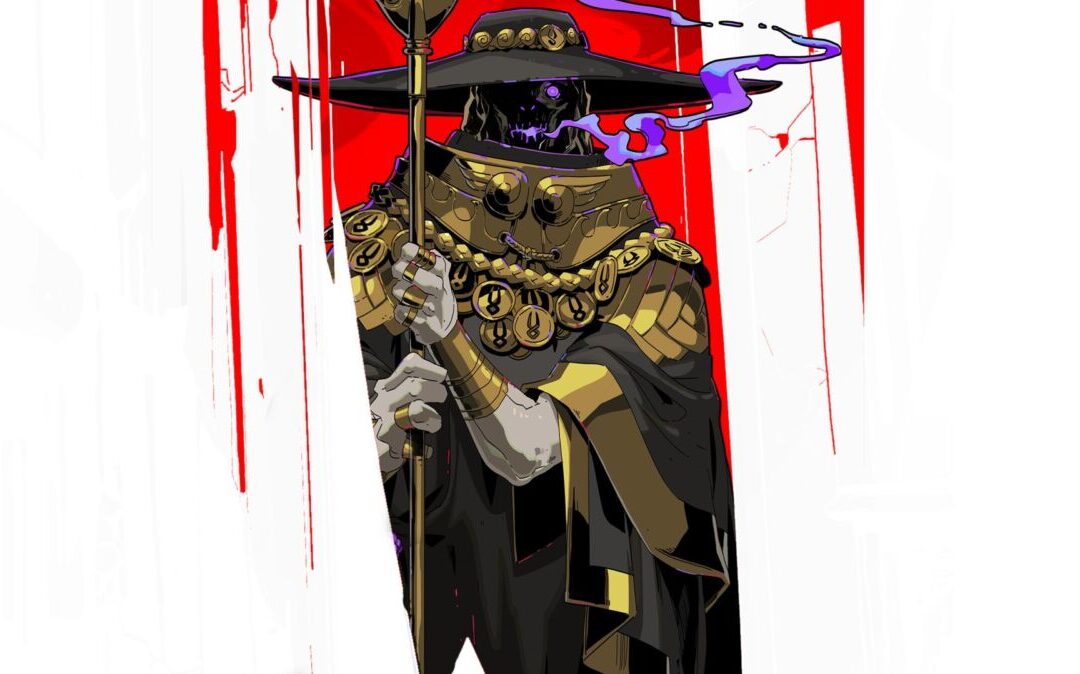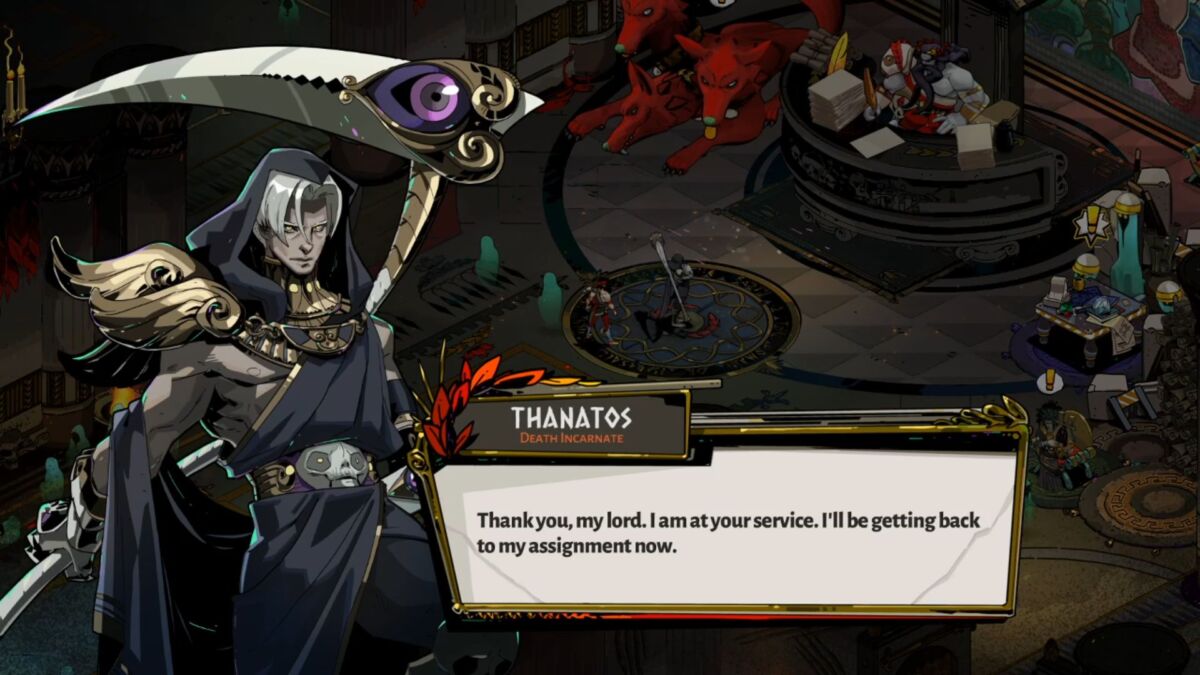Minor spoilers follow for subplots within Hades, though these do not spoil the outcomes of said subplots.
I keep dying over and over in Hades and I am never that mad about it, 100 hours and almost as many deaths later. I am totally okay with my failures. In fact, sometimes I welcome them.
This is because Supergiant have made each death a chance to dive into their wonderful lore, an opportunity to become best mates with a skeleton as you batter him to temporary death, the time for you to really dig into the stories they’ve weaved in their particular vision of Hell. Whenever I emerge from that pool, I do so with excitement rather than resignation as I never know what kind of snarky conversations and revelations await me.
I’ve emerged from that pool a lot, yet I am constantly amazed by how oddly fresh it feels each time, like each death is an opportunity rather than a brick wall. I think that has a lot to do with the depth and strength of the game’s writing, which is unusual for a punishing roguelike where the gameplay and general sense of masochism are typically at the forefront instead.
I’ve played Hades to utter death over the last couple of weeks and have seldom heard any repeated voice lines whatsoever, which continues to surprise me. Each conversation with Achilles fills me in on something new in his backstory and every razor-sharp back-and-forth with Hades makes his and Zagreus’ relationship that much more intricate.
But where does it end? Will Thanatos learn to sit back on a lawn chair and chill out? Will I ever get to the point where Cerberus starts sicking up vermin instead of any meaningful interactions? Will Hypnos just never wake up from his nap?
To answer my questions, I asked Supergiant’s Greg Kasavin over email just how many words and voice lines are in the game and, well, there are a few.
“By word count, Hades contains more than 300,000 words.”
That’s a lot of words. To put that word count into context, there are more words in Hades than The Two Towers and Return of the King combined with enough room for the best bits of The Hobbit. It also features more words than Homer’s The Iliad and Odyssey combined, two works that shaped our understanding of Ancient Greece — Hades might not even exist without them. Hades’ word count is also roughly 40% of the length of the King James Authorized Bible, which, by all accounts, is a fairly popular and long book.
From a purely dialogue perspective, Kasavin told me that “more than 2/3 of the word count is dialogue text”, meaning that Hades’ dialogue alone contains more words than The Fellowship of the Ring, which goes some way towards explaining the 21,000 voice lines recorded for the game.

So why write such an odyssey? According to Kasavin, it’s so players keep coming back just as I have:
“Knowing Hades could be played indefinitely, I felt it was important for players to not quickly run into that moment of characters having repeating dialogue, as I find that moment disappointing in other games. So, the only real solution was to give our characters lots of stuff to say! We also love having reactive moments in our games, so it was fun to imagine our characters responding to different things or interacting with one another in different combinations. I did the writing, while Darren Korb our composer and audio director (and the voice of Zagreus and Skelly!) directed the voice sessions and did all the recording. It kept us busy, though I know Darren would agree it was one of the highlights of the project, and it’s been gratifying to see players enjoying meeting all the different characters.”
With my mind thoroughly blown and seeping out of my ears, I began to wonder just much scripting was involved to maintain so much interdependent dialogue without anything breaking. Hades is a game where you technically don’t have to talk to every character, so how does it work when you don’t talk to X before attempting Y? According to Kasavin: “The scripting was mostly simple, except when it wasn’t!”
“Some of the subplots, such as Achilles’ subplot with the fallen warrior in Elysium, were very complicated to script, in part because there are many pathways into the subplot depending on certain factors,” he continued.
“Another example where things get complicated is the Orpheus and Eurydice subplot, because you can meet the characters in any order, and may have talked to one an arbitrary amount of time before the other, and the game takes all of that into account. Finally, we have to account for weird user paths such as the player deciding to never speak to certain characters, but then starting to speak to them after a hundred runs or something like that. For example, you can go through the entire game never once talking to Skelly, or Achilles (well, you technically have to talk to Achilles exactly one time).”
When you consider that many players will never feasibly be able to encounter all of the writing within Hades, the sprawling odyssey that it is, it’s another example of Supergiant being brilliantly Supergiant. It’s that attention to detail that has made Hades my favourite game of the year, so much so that I’m eagerly awaiting my next death and the latest opportunity to bribe people to love me with booze, as all good relationships should be.
Hades is available now for PC and Switch.
READ NEXT: Supergiant’s Hades And The Never-Ending Story of the Gods
Some of the coverage you find on Cultured Vultures contains affiliate links, which provide us with small commissions based on purchases made from visiting our site. We cover gaming news, movie reviews, wrestling and much more.





